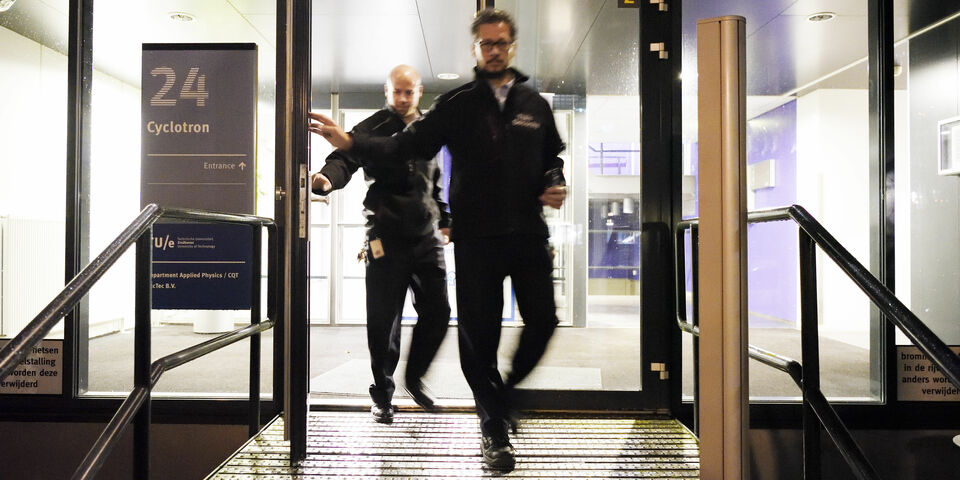TU/e campus feels like a safe place
Almost everyone on the TU/e campus feels safe there always (74 percent) or usually (25 percent). These are the findings of the safety study conducted last spring, the results of which are now being made public. Completed by nearly three thousand students, employees and residents, the survey also shows that students and men feel safer than employees and women.
Similarly, back in 2013, when the previous safety study was conducted, one in every hundred campus users did not feel safe. The fire service and security staff scored 7.48 at that time. This rating has now risen to 7.81. The respondents are a little more satisfied with response speeds, and the way in which matters are settled also seems to have improved. Nonetheless, many people would appreciate even more feedback about the incident they reported.
Frequently mentioned areas where improvement is needed are traffic safety, situations involving renovation work, lighting in more remote parts of the grounds, and the (visible) presence of security staff. Lighting has the biggest impact on whether people feel safe: 74 percent of respondents indicated that its influence is (very) great.
Peter Bloemers, head of the Safety & Security department, is satisfied with the study's findings. “People feel safe on the campus and that is, of course, good to hear. However, this brings with it the disadvantage that it encourages students to take less care, and unfortunately as a result we still have a couple of dozen stolen laptops every year.”
Culturally dependent
One of the striking findings is that some respondents feel safe because security staff are visible on campus, while this makes others feel anxious. “This seems mostly to be culturally dependent,” says Bloemers. “In the Netherlands we are inclined to think: ‘things are being well managed’ while people from Asia in particular start wondering why the security is necessary.”
Some respondents also indicated that they feel anxious in response to people they suspect of having no good reason for being on the campus. This is a tricky problem, says Bloemers. “With the arrival of student homes on the campus, we are seeing a completely new dynamic - especially at night. There are people from off-campus who come to visit friends and the residents regularly return home late. It used to be that if someone was at the barriers at two-thirty in the morning, we had good reason to follow him. But now he's simply coming home from an evening out.”
Recognizing unwanted visitors
In view of this, in the training sessions for security staff more attention will be paid to assessing suspicious behavior, Bloemers emphasizes. “The challenge is to recognize the unwanted visitors among the stream of students who arrive by the Limbopad. A good way of doing that is to go up to someone and ask whether they need help. You can tell from their reaction whether they have simply lost their way, or have no good reason for being here.”


Discussion